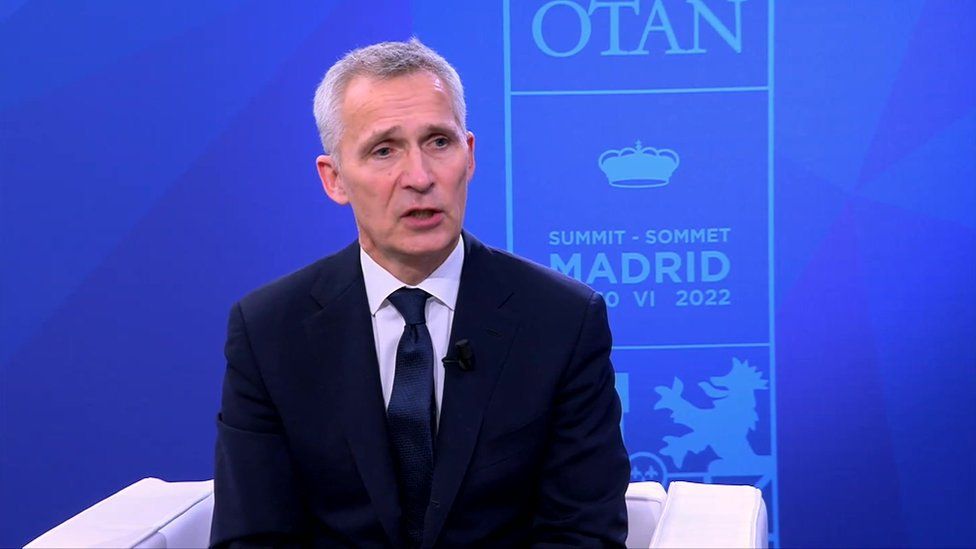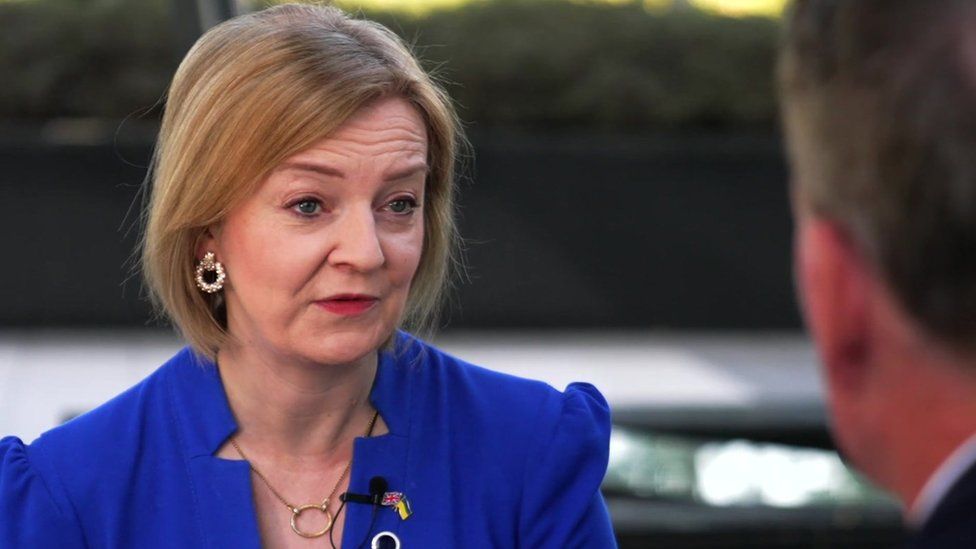Nato summit in Madrid for hawks
Historic, transformative, game-changing. Even before this year's Nato summit began, the epithets were rolling in. For this was the first such summit since Russia's fateful invasion of Ukraine on 24 February.
Most important of all, would Turkey drop its opposition to two key democracies - Finland and Sweden - joining the alliance?
That diplomatic breakthrough came early on with the two Nordic nations set to be fast-tracked to membership after their foreign ministers signed a security pact with Turkey.
The Kremlin reacted with predictable indignation, branding Nato an aggressive, expansionist organisation with imperialistic ambitions.
I asked Jens Stoltenberg, Nato's Secretary General, for his reaction.
"Russia doesn't respect the decisions of free nations and therefore it uses force to try to prevent them from doing what they want. That's one of the reasons why they have invaded Ukraine."
And what, I asked Stoltenberg, would he say to those who suggest that Nato is partly to blame for the war in Ukraine by "provoking" a paranoid Kremlin which claims it is being surrounded by a hostile Nato?
"This idea that Nato has some kind of responsibility for the [Ukraine] war is absolutely meaningless," retorted the Nato chief.

"Ukraine is a sovereign nation, they have made their decision. We are 30 allies, we have made our decision. None of that is an excuse to invade another country.
"The core of this matter is that President Putin doesn't like a free democratic successful nation on his borders. He therefore wants to re-establish some kind of sphere of influence. That's unacceptable and that's why our allies are providing unprecedented levels of support to Ukraine."
By midway through the summit the US had announced a package of reinforcements for Europe: two squadrons of F35 stealth bombers to be sent to Britain, two naval destroyers to Spain and thousands of troops to Romania.
The UK followed suit, announcing a further 1,000 troops to be allocated for the defence of Estonia, a frontline state on Russia's border with one of its two aircraft carriers allocated - in a time of emergency - to a newly enlarged Nato rapid response force that's set to grow from 40,000 troops to over 300,000.
The aim of all this, Nato ministers told me, was to build such a powerful deterrent that President Putin is dissuaded from launching any more land grabs in Europe.
But what about an eventual peace deal? Will it ever be possible to make a deal with Russia that ends the war in Ukraine?
That can only happen, said the UK Foreign Secretary Liz Truss, once Russia is pushed out of Ukraine and held accountable for its (alleged) war crimes.

Interviewing her in the shadow of the towering, plate-glass skyscraper that houses the UK's embassy in Madrid, I asked her if she still believed that included making Russia give up Crimea, which it annexed in 2014. She wouldn't be drawn. But she said Nato needed to ensure that a Russian invasion of a sovereign nation could never be repeated.
Ms Truss was far from being the only "hawk" pushing for a robust stance towards Russia, and to a lesser degree China.
In a sunlit Spanish garden in downtown Madrid I interviewed Estonia's Prime Minister Kaja Kallas. Could she, as a neighbour of Russia, I asked, trust in a future peace deal with Moscow?
"I think the West has been misled by Putin," she replied. "He has lied a lot and has not kept the promises that he has given and therefore we shouldn't believe him any more. Plus the mistake that we have done is that the war crimes have not been punished."
If there were any dissenting voices among leaders at this summit, I didn't hear them. But once those leaders have returned home they may find more domestic problems taking priority. So not every ambition announced with such fanfare in Madrid may end up being fulfilled.








